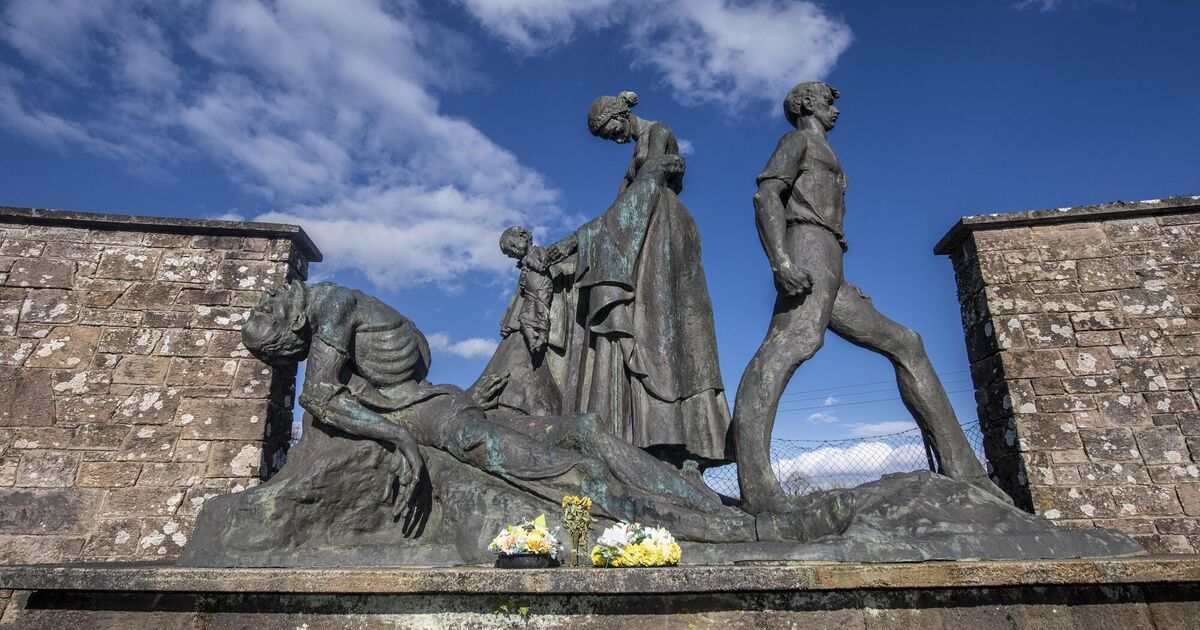Ballyseedy is an example of the toxic politicisation that can be deployed in commemorations.
The massacre at the townland outside Tralee was the outrage that came to define, for many, the brutality of the civil war.
On March 6, 1923, five national army soldiers were killed in a booby trap bomb in Knocknagoshel, Co Kerry.
The following night, nine anti-treaty prisoners were taken from Ballymullen barracks in Tralee to Ballyseedy.
There, on a lonely road, they were tied together around a mine, and the explosive detonated.
Miraculously, one man, Stephen Fuller, was thrown clear, survived, and escaped.
In 1959, when a memorial sculpture commemorating the atrocity was unveiled, Fuller was not invited on stage.
He attended the event in the audience while those on stage expounded on the awful tragedy and lives lost as if they, rather than the man who had been present, were best placed to talk about it.
Fuller had always counselled that forgiveness for what occurred should be passed down through the generations.
Overseeing proceedings that day was John Joe Sheehy, chair of the commemoration committee, and well-known Kerry footballer.
Unlike the vast majority of those on the anti-treaty side, he did not join or support Eamon DeValera’s Fianna Fáil party but stuck with Sinn Féin, which continued to reject the Anglo-Irish Treaty.
Sheehy’s involvement, allied to the money for the monument collected from misty-eyed Irish Americans, ensured that Sinn Féin would fashion the opening of the monument as they saw fit, rather than defer to anybody who might have first-hand knowledge of the atrocity.
Fuller had served as a Fianna Fáil TD between 1937 and 1943 which apparently rendered him unfit to mark the atrocity in the eyes of some who saw themselves as real Republicans.
So it went then. So it goes today.
The Ballyseedy Memorial Committee and the National Graves Association have organised an event to mark the centenary of the tragedy.
As per the National Graves Association remit, the event is to be entirely non-political.
This is a commendable and sensible position to adopt during the decade of commemorations to remember a history that remains contested.
The tone of the event is expected to be similar to that of other commemorations, emphasising reflection of lives lost and dealing with the trauma that impacted the bereaved, often passed down through generations.
That, however, is not good enough for Sinn Féin, the party that shares the name but little else with the organisation that was the political wing of the revolution a century ago.
Now the party will hold its commemoration at 12am on March 5, with the official commemoration at 3.30pm the same day.
Ms McDonald will be the main speaker at the earlier event. No politicians will be on stage at the official remembrance.
A spokesperson for Sinn Féin told the that the reason behind hosting its own event was “the horror” over what had been committed at Ballyseedy.
Certainly, what occurred was barbaric.
Yet the idea that one side had sole purchase on the savagery that informed the eleven-month conflict is a complete distortion of history.
There has been some criticism of the low-key approach that the government has taken to commemorate the civil war.
However, the policy of allowing local organisations to hold events appears to have worked well. In this respect, neither of the so-called “civil war parties” could be accused of trying to politicise the anniversary.
The same cannot be said for Sinn Féin.
All the indications are that Sinn Féin is primarily interested not in remembering the distant past as it was but in presenting it in a manner to suit its current agenda.



